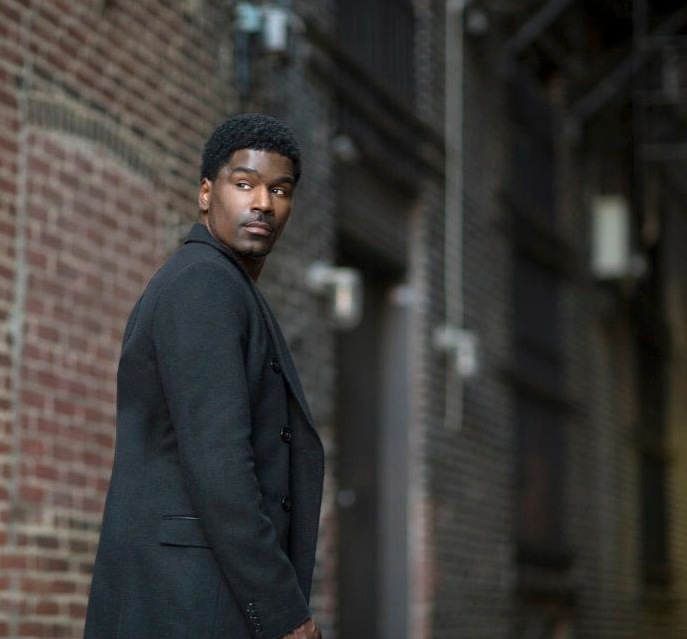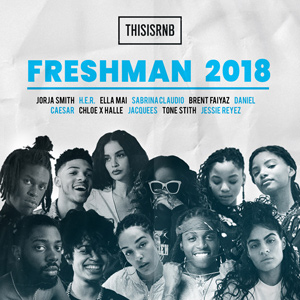Glenn Lewis returned to music recently with his heartfelt ballad “Can’t Say Love.” The lead single off his forthcoming, much-delayed sophomore album Moment of Truth.
Almost every week we hear people asking about what happened to R&B, or artists talking about bringing R&B back, or where the genre is going. In a new editorial blog for The Huffington Post, Glenn has shared a well-written piece about the state of R&B music over the past 20 years or so, and its connection to our culture, the perception of love, relationships, and our pasts which drive our feelings on the topics R&B most often caters to.
When you have some free minutes, read Glenn’s piece below:
In a decaying society, art, if it is truthful, must also reflect decay. And unless it wants to break faith with its social function, art must show the world as changeable. And help to change it. ~Ernst Fischer
There is fearlessness in childhood, an unbridled passion and confidence that only comes with trust. Trusting that your loved ones will protect you; trusting that you can fall, eyes closed, and the people that you love will be there to catch you.
There is no conscious thought of failure or rejection. There is only love and beauty, joy and possibility. Then boy becomes aware of girl, and girl becomes aware of boy. And from that first moment — at around 8- or 9-years-old – the first, unfurling notes of an epic R&B song are created.
Untainted, every sense is filled with inspiration, anticipating the soul-shaking discovery that can only stem from the power a woman can wield over a man, which is unlike any known force in the universe. The pursuit ensues. But at some point, often times usually those teenage years, there’s a breakdown in communication — a misconstrued interpretation of the nature of a woman.
While the boy believes the way to her heart is to be gentle with the girl, she, being an innate nurturer, instead gravitates toward the boy who appears misunderstood and needs “fixing” — the bad boy. The nice boy’s heart is then broken with disappointment, a scar that runs deep into youth and beyond. And without maturity and guidance, he grows to believe he must become that bad boy. His bruised vulnerability is hidden while he inflicts pain on the next girl — and the woman after that, spawning her disappointment.
He doesn’t understand that rather than being misogynistic — or even abusive — it’s about pacing one’s self, which provides an air of mystery for women to explore. It’s about understanding that mutual fascination is more compelling than “fixing.” It’s about confidence that comes from self-love, rather than arrogance that, in fact, is perceived as compensation. It’s about the fragile balance between compassion and sensitivity, and a man’s need to dominate and conquer.
Until the man learns this, if he ever does, the boy inside will forever think that the way to the girl’s heart is to go through the motions of what he mistakenly thinks she wants, rather than expose his true self. And the vicious cycle — propelled by the fear of both men and women — intensifies, resulting in deflection and manipulation.
I’m often asked what happened to R&B; but the underlying question is what happened to trust. And the answer is as complex as the culture that nourishes the music.
To honestly deconstruct when R&B became more concerned with sex than soul, we have to understand that art merely reflects life. Any manifestation of love — which is what R&B music is at its core — will reflect the experiences, desires and vulnerability of a musician on an artistic and personal level.
Where others might sense bravado, sexism and hyper-masculinity in today’s music, what I sense is fear — a kind of defense mechanism. I’ll never forget hearing De La Soul’s record, “Wonce Again Long Island,” from their 1996 album, Stakes Is High. Pos spit a line about those, “R&B dudes lying to mother, sister and daughter,” and the harsh truth in that statement rocked me to my core. R&B dudes do lie to women — so do Hip-Hop dudes, and Rock dudes and Pop dudes. Regardless of genre, men fear the power that women have over them; they fear the ridicule of other men and being perceived as not “man enough.”
It is a sad reality that the breakdown of the Black family, has led to a warped culture wherein Black love is often misidentified and unhealthy. Often times, boys without fathers in the home grapple with the definition of manhood. And the journey from being a “bad boy” to a “good man” is perilous without firm guidance.
From an early age, men take their cues from women. As boys, we learn that we have to be sensitive, but not soft. We have to be respectful, but not “too nice.” We have to take control, without being controlling. That balance is as difficult to achieve in music as it is in life, and trying to strike it leads to lies and resentment — and wondering what happened to R&B.
Humanity is a chaotic labyrinth of tangible experiences and intangible emotions. Though we possess an animalistic instinct that senses vulnerability, we often become so distracted guarding our own that we miss its reflection in those around us. What some women don’t understand is that most men are still those eight- or nine-years old boys at heart. We still want to run without the fear of falling. We still want to love without the fear of rejection. And we still want to trust without the fear of betrayal.
The only acceptable replacement for that lost innocence is authentic experience.
And experience teaches men that women hold more power than they realize or are comfortable accepting. From the moment men discover the wonder that is a woman, we spend a lot of time out of our lives waiting. We wait until the right moment to approach her. We wait until we have the right thing to say. We wait to see if it will make her smile. We wait to text or call once we get the number as to not look desperately captivated by her.
This is not to say that women don’t also spend a lot of time waiting, or that women are the reason that R&B has taken the detour that it has. It simply means that men, particularly Black men, are conditioned not to express weakness, which leads to a fear of expressing love because women hold the power to reject them. Chris Rock once joked that, “A man is only as faithful as his options.” And while that may be true of some men, the options aren’t what many people believe them to be. Maybe he chooses unfaithfulness over ridicule or loneliness or fear.
Maybe, he chooses unfaithfulness because he has no idea what it is to be a man, so dishonesty is his only option by default. To complicate matters, women can sense deceit and inauthenticity, so they shield their hearts — and only the strongest man is able to gently remove the armor.
What I have learned, and try to express through my music, is that men aren’t strong all the time. We give up on love, when we should fight harder. We rely on sex to maintain intimacy, when it often acts as a barrier that prevents true understanding between men and women. Men aren’t perfect; we’re human and we need space to share that truth without judgment. We have a generation of defensive R&B because men and women have become complacent in their romantic relationships, while feeding superficial ones that don’t place their hearts at risk.
It’s not uncommon to become comfortable with complacency. Everyday we’re complacent with breathing. We pull air into our lungs and push it out without sparing a salute to the miracle that we experience each second of every day. We do it as if we’re guaranteed the next moment; but we’re not. Often times it takes a near-death experience to reset things, so that we re-learn to appreciate each moment.
That’s what relationships need.
That’s what R&B needs.
One of the most valuable pieces of advice that my mother has ever given me was to love each time like it’s the first time. And if we are to ever get the soul, the heart back into R&B, we have to learn to love each time like the first time. We have to remember — and value — love and beauty, joy and possibility.
Don’t get me wrong, music that sets the mood, creates the fantasy of erotic euphoria, is the need of every woman as well as man. There’s no deeper expression of intimacy as two physically engaged, indulging in each other to the height of the greatest known pleasure on this planet; or even for the sake of shock value, we all know, sex sells.
But it’s no secret that there is a misrepresentation of black love in the imbalanced, sexually overt messages in R&B of late. And, over time, that shift has seemed to suggest that it’s unaccepted, unrealistic, corny even, for a man to express his feelings for a woman in wanting not only her body but her time and, ultimately, her heart.
When Stevie Wonder warned us about the importance of “These Three Words,” and Nina Simone gave notice that “I Put A Spell On You,” and Babyface begged “When I Can I See You Again,” they were fearless. They embraced heartache, rejection, pain and regret. They sang about the longing for genuine intimacy in the absence of perfection. Most importantly, they understood — in the words of prolific French sculptor Antoine Bourdelle — that “the secret of art is love.”
That statement, so powerful in its simplicity, is why I don’t consider myself to be just a musician, but an activist for love. When I sing, I either sing about things that have already happened, or things that I want to experience and things that I want my listeners to experience. Maybe a woman will hear my words, and recognize her relationship. Maybe she had one foot out of the door, because she was tired of the merry-go-round; frustrated with expectations that her significant other couldn’t, wouldn’t or didn’t know how to fulfill.
But then something that I said made her want to try again — made her want to love again.
That is what R&B is missing.
Purchase the new Glenn Lewis single “Can’t Say Love” on iTunes.
Pre-Order the new Glenn Lewis album Moment of Truth





